Divorce can feel like the end of a story, but in reality, it is a chance for a new beginning. You may feel lost and unsure of who you are now.
Rebuilding your identity after divorce means rediscovering what makes you unique and what brings you joy.
Take this time to explore your interests and passions. Try out new activities or pick up old hobbies that you may have neglected.
Surround yourself with positive influences who support your growth and understand your journey.
It’s crucial to focus on your wellbeing. This means taking care of your physical, emotional, and mental health.
Establish new routines that help you feel strong and confident.
This period of rebuilding is an opportunity to create a version of yourself that is true to who you are.
Understanding Identity and Divorce

Divorce can make you feel lost. Your identity might have been closely tied to being a spouse. Now, that part is gone.
Identity is how you see yourself and want others to see you. It includes:
- Your values
- Your hobbies
- Your goals
During marriage, you might have changed these parts to fit your role as a partner.
When a marriage ends, you may need to rediscover yourself. This can feel confusing and scary. Don’t worry, this is normal.
Effects of Divorce on Identity
Divorce can impact:
- Self-esteem: You may question your worth.
- Roles: Your day-to-day tasks and responsibilities change.
- Relationships: You might lose some friends who were shared with your ex-spouse.
Steps to Rebuild
- Reflect: Think about who you were before marriage.
- Explore: Try new hobbies or activities.
- Set goals: Think about what you want for your future.
Rebuilding your identity is a journey. Be patient with yourself.
Emotional Processing of Divorce

Getting through the emotions after a divorce is crucial. It’s important to accept your feelings and seek support if you need it to help heal and rebuild yourself.
Acknowledging Your Grief
Grief after a divorce can feel overwhelming. Let yourself feel sorrow, anger, or even relief. Ignoring these feelings can make them grow stronger.
Talking about your emotions can help. Write in a journal or speak with close friends.
It’s okay to cry or feel lost. These emotions are part of healing.
Avoid rushing the process. Healing takes time, and there’s no set schedule.
Trust the process. Be kind to yourself during this time.
Practice self-care, like exercise or hobbies, to help manage your emotions.
Remember, accepting your grief is a step towards finding your new identity.
Seeking Professional Support
Talking to a therapist can make a big difference. They can offer you strategies to cope with your feelings.
Therapy gives you a safe place to express yourself without judgment.
Look for a therapist who specializes in divorce or grief.
Support groups can also be helpful. Connecting with others who are going through the same thing can make you feel less alone.
These groups offer shared experiences and advice.
Many are available both in person and online.
Exploring different types of support ensures you find the right fit for your needs.
It’s essential to reach out for help and not try to handle everything on your own.
This kind of support can provide you with tools to rebuild your identity and move forward.
Rebuilding Self-Concept
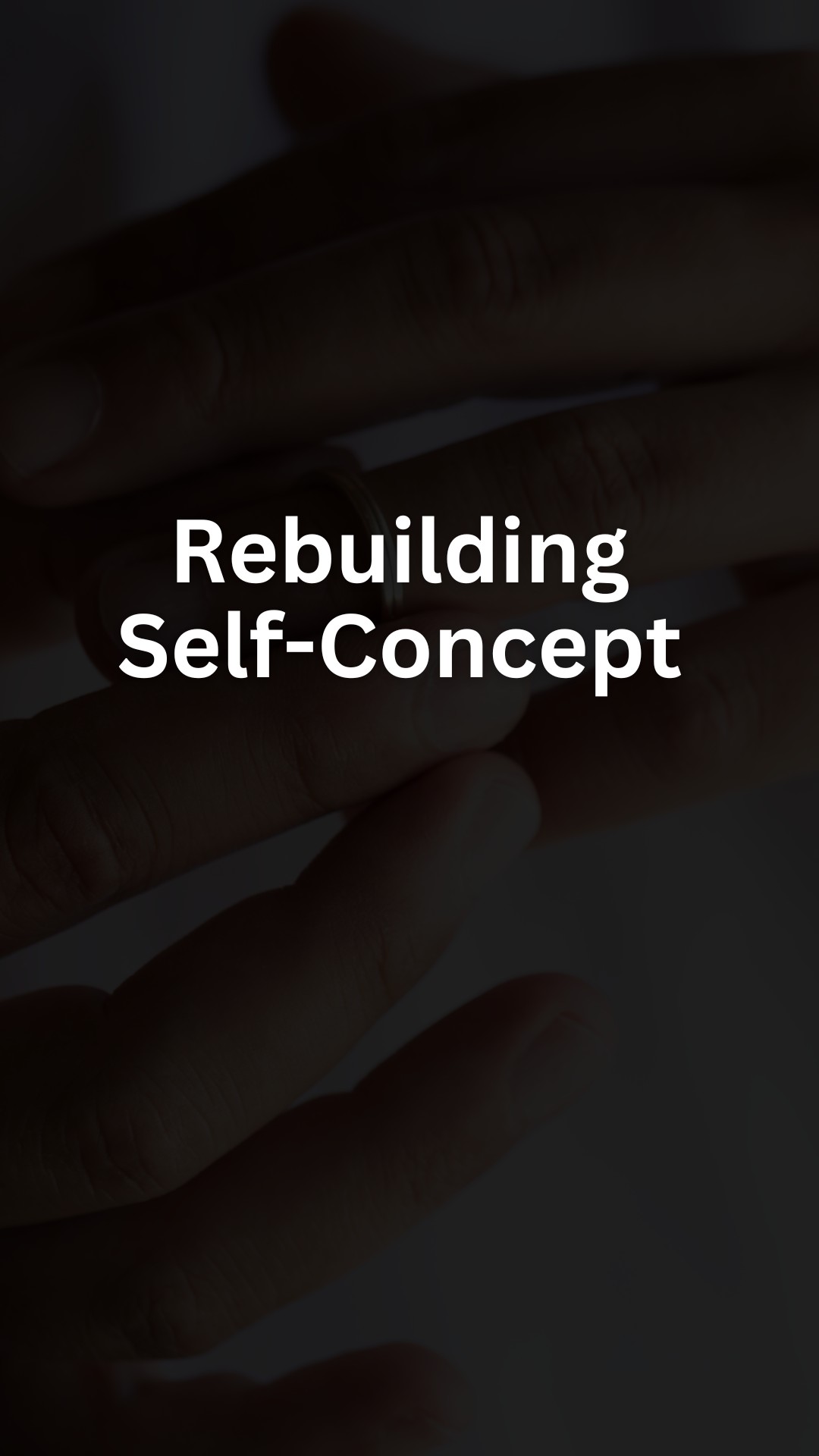
Rebuilding your self-concept after divorce requires looking at who you are and deciding who you want to become. This involves reflecting on your current identity and setting personal goals to guide your journey.
Reflecting on Self-Identity
Think about who you were before and during your marriage. Write down qualities, skills, and interests that define you. This helps you see your strengths and areas for growth.
Consider your values and what is important to you now.
Divorce changes many things, but it can also be a chance to reconnect with what you truly care about. Make a list of these values.
Talk to close friends and family. They can offer insights into your strengths and help you remember parts of yourself that you might have forgotten.
This can boost your confidence and provide a clearer picture of who you are.
Setting Personal Goals
Decide on what you want to achieve in the next phase of your life.
Start with small, manageable goals that align with your values and interests.
This could be learning a new skill, starting a hobby, or improving your health.
Write down your goals and make a plan to reach them.
Break them into smaller steps and set realistic deadlines.
This makes them more achievable and keeps you motivated.
Track your progress and celebrate your achievements, no matter how small.
Each step you take builds your confidence and rebuilds your sense of self.
Surround yourself with supportive people who encourage your growth and celebrate your successes with you.
Developing a Support System
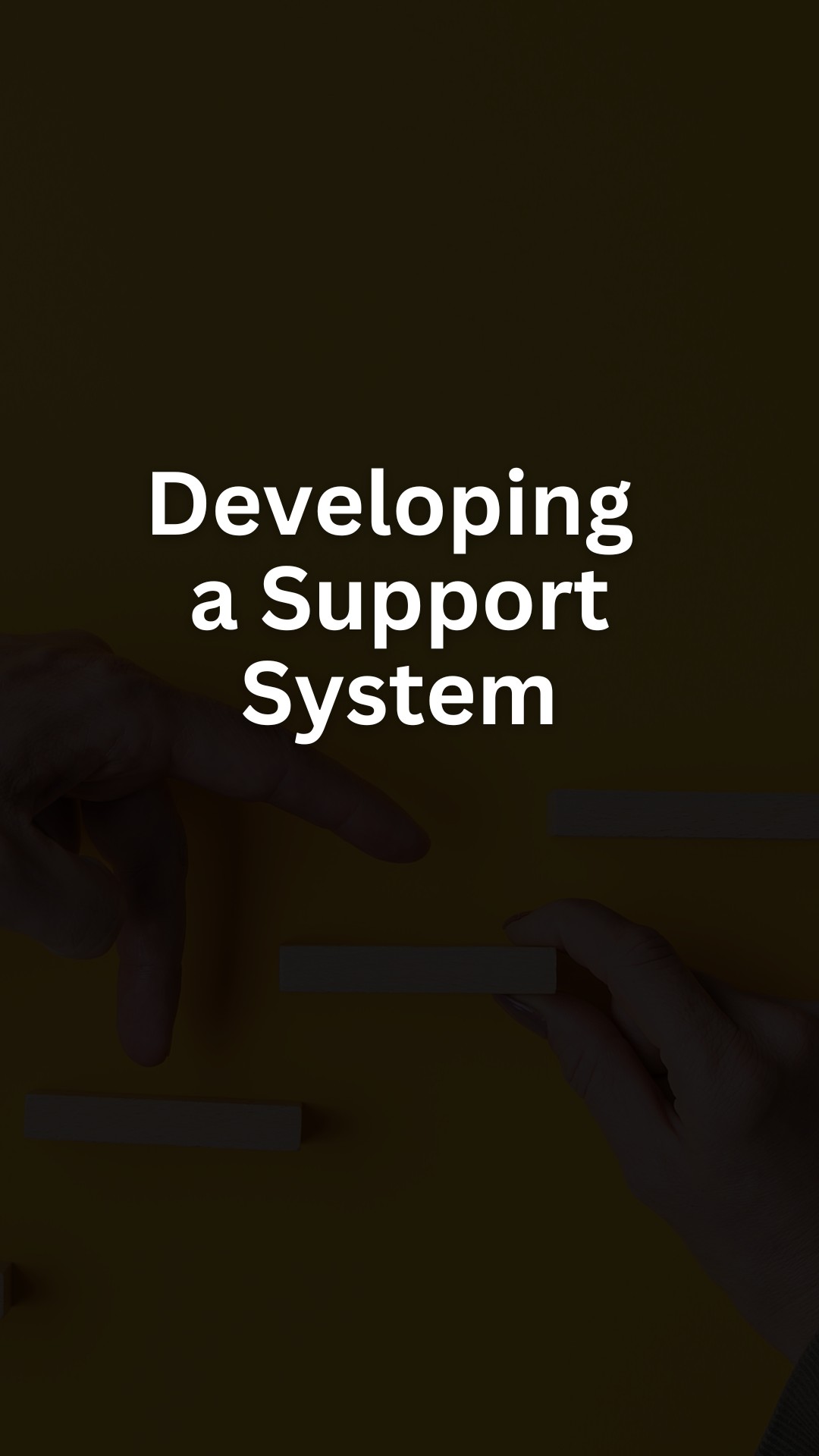
A strong support system can be crucial when rebuilding your identity after divorce. You can start by reconnecting with friends and family, and then branch out by joining community groups.
Reaching Out to Friends and Family
Reconnect with the people who care about you. They can provide emotional support and understanding. Sometimes, just having someone to listen can make a big difference.
Host a small gathering at your home or invite friends for a coffee.
Don’t be afraid to share your feelings and experiences. Open conversations can deepen your bonds.
Schedule regular check-ins with close family members.
It could be a weekly phone call or a monthly dinner. These touchpoints help maintain strong connections and provide routine stability.
Connecting with Community Groups
Join local groups that interest you. This can include hobby clubs, sports teams, or support groups for people going through similar experiences.
Attend meet-ups or events in your area. These can be great places to make new friends and find people who share your interests.
Engage in volunteering.
Helping others can give you a sense of purpose and introduce you to a community of like-minded individuals.
Use social media and online forums to find and connect with groups.
Many communities have vibrant online spaces where you can discuss, share, and get support.
Cultivating Personal Growth
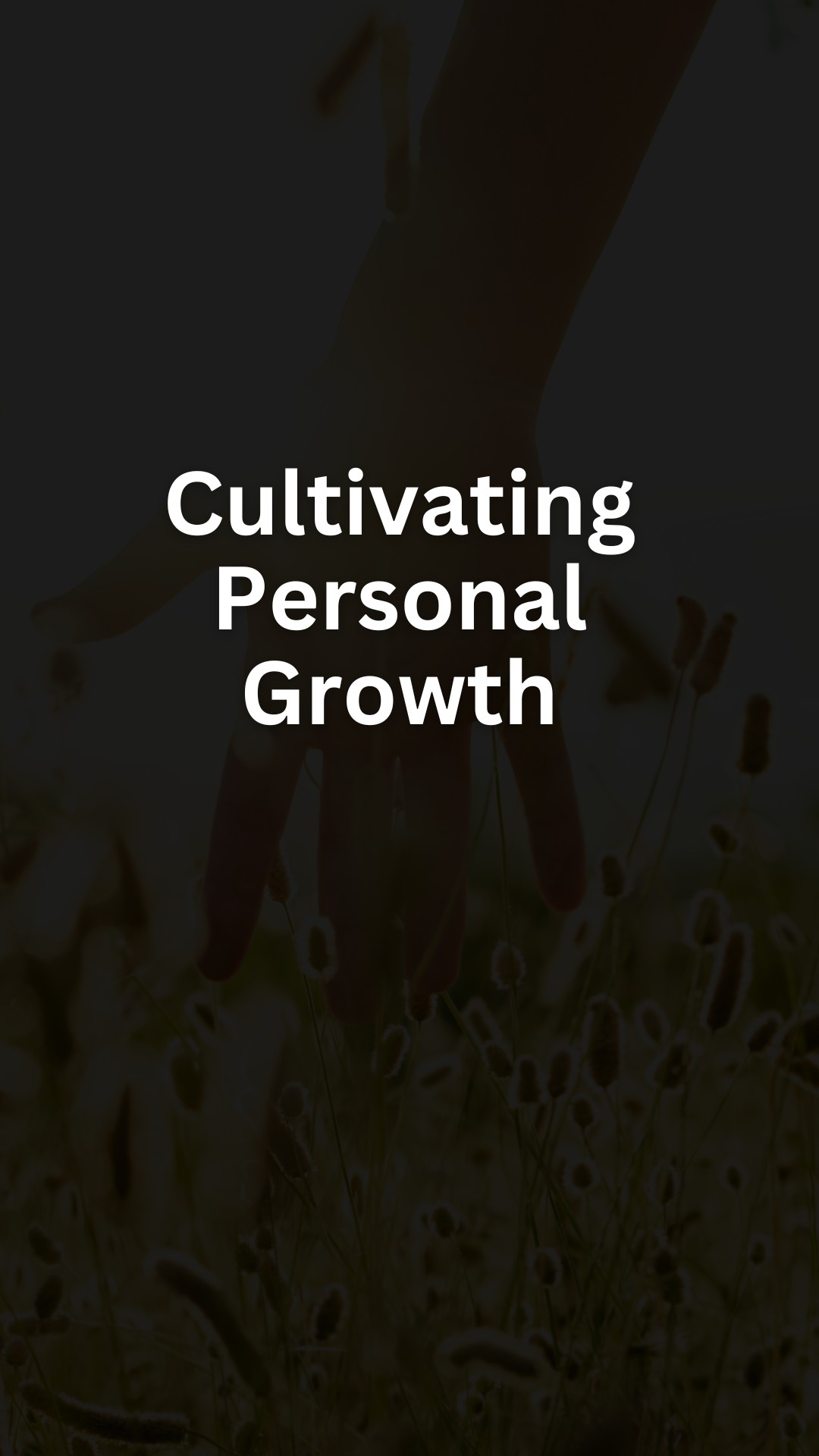
Rebuilding your identity after a divorce can be empowering. By exploring new interests and engaging in learning and development, you can find new passions and skills that help you grow personally.
Exploring New Interests
This is a chance to find activities that you enjoy.
Think about hobbies you always wanted to try.
Join a class or group in your community. This can be cooking, painting, or even hiking.
Make a list of things you have always been curious about and give them a shot.
Trying new things can help you discover more about yourself.
It also helps you meet new people and build connections.
Being open to new experiences can be very rewarding.
It not only fills your time but also adds meaning and joy to your life.
Learning and Development
Invest in your personal growth by learning something new.
This could be taking an online course or reading books on topics you are interested in.
Learning helps keep your mind active and engaged.
Consider skills that can improve your career or personal life.
This might include learning a new language, improving your computer skills, or even practicing mindfulness and meditation.
Find ways to challenge yourself and set personal goals.
This keeps you motivated and focused.
Whether it’s attending workshops, listening to podcasts, or watching videos, there are many resources available to fuel your development.
Embrace opportunities to grow.
This not only builds your confidence but also helps you feel more self-assured in your new chapter of life.
Legal and Financial Independence

Securing your legal and financial independence after a divorce is crucial. You’ll need to manage your own finances and understand your new legal responsibilities.
Managing Finances Post-Divorce
Start by creating a new budget. List your income and expenses. Make sure you include any child or spousal support you receive or pay. Adjustments to your lifestyle may be necessary.
Steps to Manage Finances:
- Open Individual Bank Accounts: Close any joint accounts and get new ones in your name.
- Update Financial Documents: Change your beneficiaries on insurance policies and retirement accounts.
- Credit Score: Check your credit report for errors and work on improving your credit score if needed.
- Debt Management: If you have joint debts, ensure they are transferred or refinanced under one name.
Important Tips:
- Consider consulting a financial advisor.
- Track all your expenses and stick to your budget.
Understanding Legal Responsibilities
Know your rights and obligations.
Key Areas to Focus On:
- Custody Agreements: Follow custody arrangements for your children if applicable.
- Property Division: Ensure that the division of property and assets is completed as per the divorce decree.
- Spousal and Child Support: Make sure you understand payment amounts and schedules for any support orders.
Actions to Take:
- Update Legal Documents: Change your will and any power of attorney documents.
- Name Changes: If you changed your name, inform all necessary parties like the DMV, social security office, and banks.
- Legal Consultations: Speak with a lawyer if you have any questions about your responsibilities or rights.
Parenting and Co-Parenting Strategies
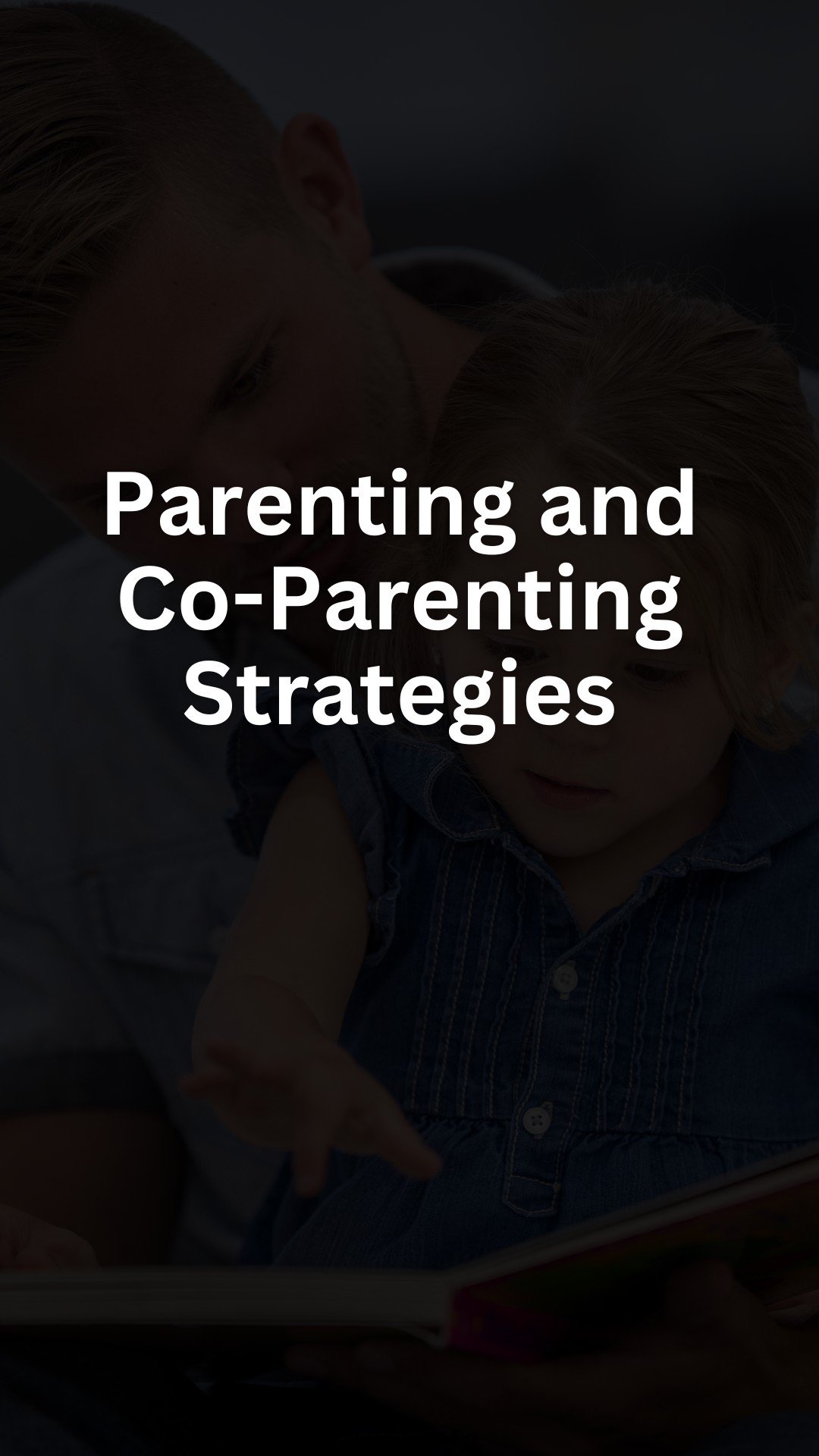
Effective parenting and co-parenting after divorce can help maintain stability for your children and promote healthy family dynamics. Focus on clear communication and the well-being of your children.
Communicating with Your Ex-Partner
You and your ex-partner need to keep the lines of communication open. This helps you coordinate schedules and handle any issues that come up.
Use respectful language and stay calm, even during disagreements.
Set up a shared calendar for events and activities. This creates a clear schedule for both of you.
Agree on preferred methods of communication such as emails or texts to avoid misunderstandings.
Keep your conversations focused on your child’s needs, avoiding personal conflicts.
If face-to-face meetings are hard, consider using mediation services.
These professionals can guide your conversations and help you find common ground.
It’s also useful to have regular check-ins to discuss your child’s progress and any changes needed in your co-parenting strategy.
Fostering Children’s Well-Being
Your children’s well-being should be the top priority.
Ensure they feel loved and secure by both parents. Maintain routines to give them stability.
Encourage them to express their feelings and listen patiently to what they have to say.
Make sure both homes provide a similar environment. This helps children adjust more easily.
Avoid speaking negatively about your ex-partner in front of them. Respect their relationship with both parents.
Engage in activities that your children enjoy.
This strengthens bonds and creates positive memories.
Keep teachers and caregivers informed about the situation so they can provide additional support if needed.
Re-entering the Dating Scene

Navigating the dating world after a divorce can be challenging. It’s important to form new relationships while maintaining healthy boundaries.
Building New Relationships
Start by taking things slowly. Meeting new people can be both exciting and nerve-wracking.
Focus on social activities you enjoy, such as joining clubs or attending events. This way, you’re more likely to meet people with similar interests.
When meeting new people, be yourself.
Honesty is crucial in forming meaningful connections. Sharing hobbies and interests can help create strong bonds.
Remember to keep an open mind. Not every date will lead to a long-term relationship.
Enjoy the process of meeting and learning about different people. Be patient and give yourself time to heal.
Setting Healthy Boundaries
Setting boundaries is key to protecting your emotional well-being.
Start by clearly defining what you want and need in a relationship.
Communicate openly with your potential partners about these boundaries.
Respect your own limits and don’t feel pressured to rush into anything.
Take the time to ensure the relationship is developing at a pace that feels comfortable for you.
It’s important to say no when something doesn’t feel right.
Trust your instincts.
Prioritize self-care and make sure your needs are met.
This will help you build healthier and more balanced relationships.
Physical Health and Well-Being
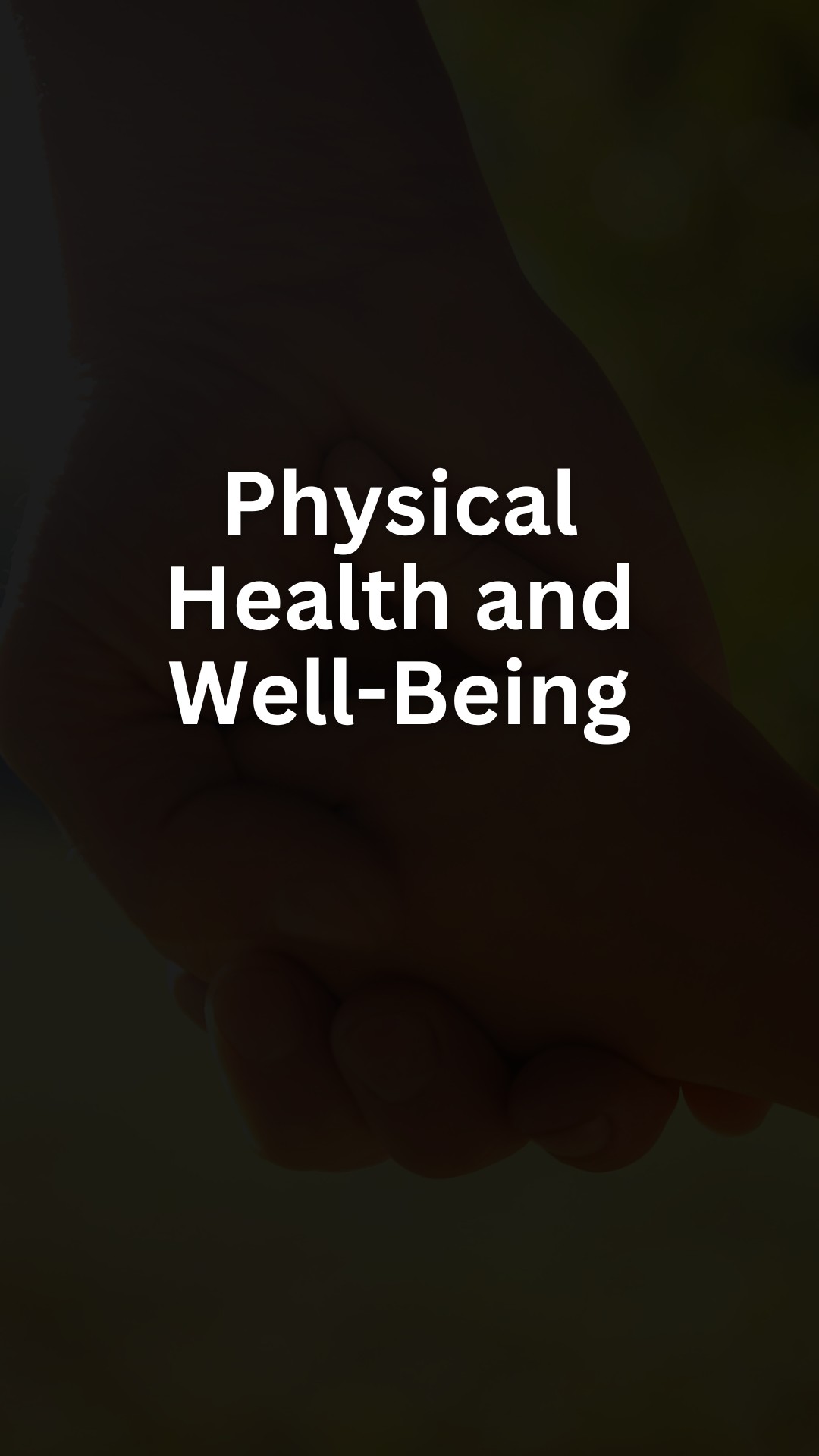
Taking care of your body and mind is crucial during this time of change.
Staying active and eating well helps you feel better and more in control.
Committing to Physical Fitness
Exercise can be a powerful tool for managing stress and boosting your mood.
Whether it’s a daily walk, joining a gym, or taking up a sport, find an activity you enjoy.
Regular exercise improves both physical and mental health.
Start small.
Set realistic goals like exercising three times a week.
Gradually increase the intensity and duration as you become more comfortable.
The key is consistency, not perfection.
Team sports or group classes can be a good way to meet new people and build a support network.
Engaging in social activities while exercising can distract you from the stress of your situation.
Prioritizing Nutrition and Sleep
Nutrition and sleep directly affect your energy levels and mood.
Focus on a balanced diet rich in fruits, vegetables, lean proteins, and whole grains.
These foods provide the nutrients your body needs to heal and stay strong.
Meal planning can help maintain a healthy diet.
Prepare simple meals ahead of time to avoid relying on fast food or snacks.
Drinking plenty of water is also vital to staying hydrated and feeling alert.
Adequate sleep is essential.
Aim for 7-9 hours each night.
Create a bedtime routine to help your body relax, such as reading or listening to calming music.
Avoid screens and caffeine before bed to improve sleep quality.
Creating Routine and Structure
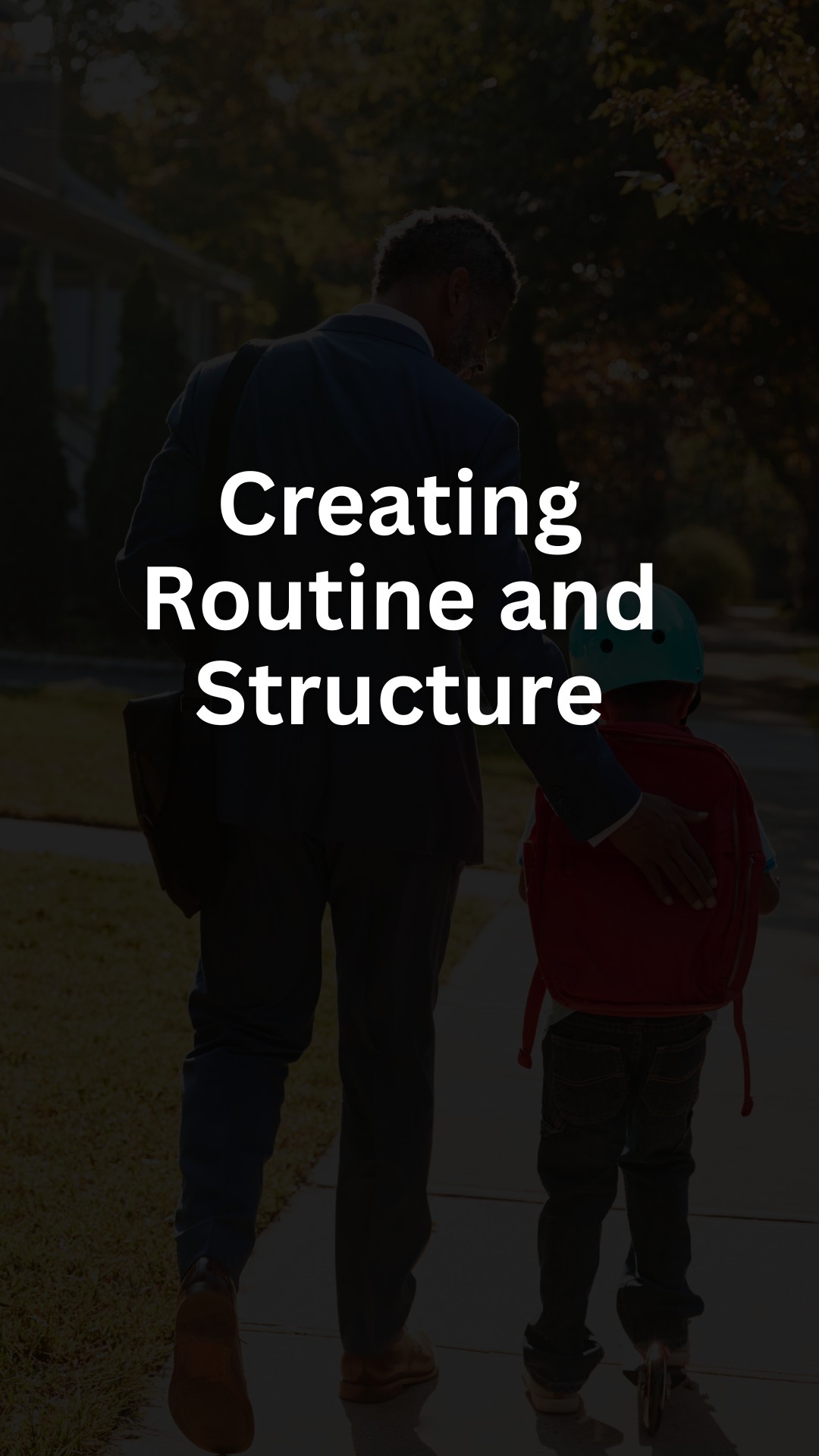
Creating routines can help bring a sense of normalcy back into your life.
Start with small, daily tasks.
Wake up at the same time each day. Have set meal times. These small routines can help ground you.
Make a weekly schedule.
It can include work, exercise, hobbies, and social activities. Having a plan can give you something to look forward to.
A daily planner can be a useful tool.
Write down your tasks for each day.
Use bold or italic to highlight important tasks or appointments.
This will make you feel organized and in control.
Try creating a bedtime routine.
Go to bed at the same time each night.
Read a book, take a bath, or listen to soothing music before sleep.
This can improve your sleep quality and overall mood.
It’s helpful to set goals for yourself.
These can be small, like reading a book, or bigger, like finishing a project.
Check these goals off as you complete them. It gives a sense of accomplishment.
Include self-care in your routine.
Plan time for activities you enjoy. This could be taking a walk, painting, or spending time with friends. Self-care is important for emotional well-being.
Below is an example of a simple weekly schedule:
| Day | Morning | Afternoon | Evening |
|---|---|---|---|
| Monday | Exercise | Work | Family time |
| Tuesday | Work | Doctor’s appointment | Relaxation |
| Wednesday | Meeting | Work | Hobby |
| Thursday | Exercise | Work | Social activity |
| Friday | Work | Errands | Movie night |
| Saturday | Gardening | Shopping | Dinner with friends |
| Sunday | Reading | Family outing | Prepare for week |
Following a routine doesn’t mean you can’t be flexible.
Adjust as needed. Creating structure can help you rebuild your identity step by step.
Cultivating Joy and Mindfulness

Rebuilding your identity after divorce involves finding new sources of joy and practicing mindfulness. These efforts help you stay present and appreciate the small moments that make life meaningful.
Practicing Mindfulness Activities
Mindfulness helps you stay in the moment and appreciate what you have.
You can start with simple activities like deep breathing exercises or guided meditations.
Set aside 5-10 minutes each day to sit quietly and focus on your breath.
Yoga is another great way to practice mindfulness.
It combines physical movement with mental relaxation. Try joining a local yoga class or following along with online videos.
Journaling can also be a helpful mindfulness activity.
Write down your thoughts and feelings to clear your mind.
This practice helps you reflect on your day and understand your emotions better.
Finding Happiness in Daily Life
Finding happiness in your daily life is key to rebuilding your identity.
Start by engaging in activities that you enjoy, whether it’s reading, cooking, or spending time with friends.
Make a list of simple things that bring you joy and try to do one each day.
Nature can be a great source of happiness.
Take a walk in the park or go for a hike. The fresh air and natural beauty can lift your spirits and help you feel more connected to the world around you.
Acts of kindness can also boost your happiness.
Volunteer in your community or help a neighbor. Doing good for others can make you feel more positive and fulfilled.
Frequently Asked Questions

Resetting your life after a divorce can feel overwhelming. Below, find answers to common questions that may help you navigate this challenging time.
What steps can I take to rebuild my personal sense of self following a marital separation?
Start with self-care.
Explore new hobbies, revisit old interests, and spend time with supportive friends and family.
Reflect on who you are and what you want for your future.
What is the typical emotional recovery timeline after ending a marriage?
Emotional recovery varies for everyone.
Some people may start to feel better within a few months, while others may take years. It often depends on the length of the marriage and how it ended.
How do I establish a new daily routine after my divorce?
First, identify your needs and priorities.
Create a schedule that includes regular activities like meals, exercise, and work.
Incorporate fun and relaxation into your routine to keep a healthy balance.
What are effective strategies for managing the challenging phases of divorce?
Lean on your support network, stay active, and practice mindfulness or meditation.
Journaling your feelings can also help.
Consider joining a support group where you can share experiences and advice with others.
In what ways can social connections aid in the process of identity reconstruction post-divorce?
Social connections provide emotional support and help reduce feelings of loneliness.
Friends and family can offer new perspectives and encourage you to explore new interests.
They play an important role in building a new, fulfilling life.
How can professional counseling support the journey of self rediscovery after divorce?
A professional counselor can provide guidance and support. They can help you process your emotions. They can also help you set new goals and develop coping strategies.
Therapy offers a safe space to explore your identity and plan for your future.